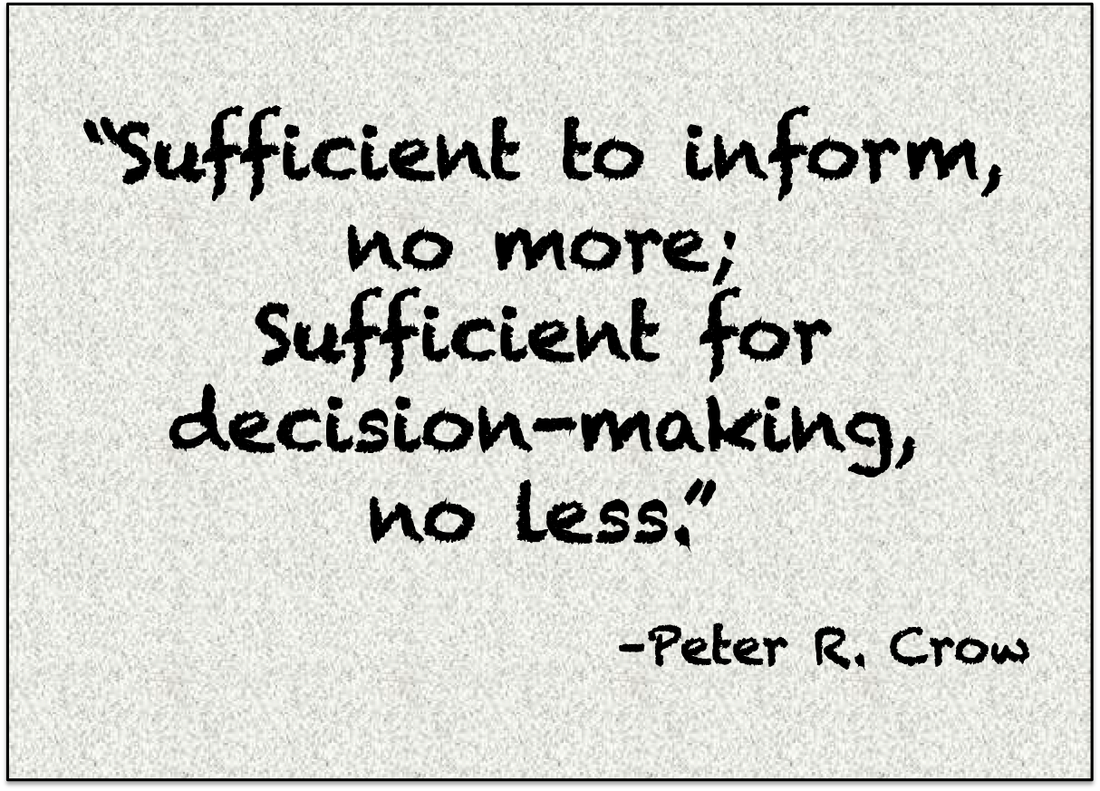|
Christmas Eve is upon us, signalling both the end of the work year for many (including me) and, importantly, one of the most significant days on the Christian calendar. Before stepping away from my desk and client projects for a few days, I want to express gratitude to the thousands of people around the world who sought advice, attended courses, listened to talks or asked questions during 2016. Thanks also to an anonymous readership: the website received over 382,000 page views (double last year)—a level of interest beyond my wildest imagination. I count it a great privilege to have had the opportunity to serve so many boards and directors. Thank you for your encouragement and support. Looking to 2017, my commitment to serve boards and directors intent on realising the performance of the companies they govern is strong. To this end, if you have a question or a request, please let me know and I'll respond in the first few days of 2017. In the meantime, my best wishes to you and your family. Kia kaha.
0 Comments
One of the humbling privileges of working with boards and directors is the opportunity to participate in discussions and provide guidance on themes as varied as corporate purpose, strategy, corporate governance and board effectiveness. The overarching aim is straightforward: to help boards become more effective in the important role of steering and guiding the organisation they govern towards its intended purpose. Recently, the topic of reporting seems to have been front of mind for many directors. I've been asked who should determine the structure and content of the board pack (the board), and what the appropriate amount of detail to include in the board pack is ("sufficient"—see the maxim below). In responding to these questions, the first consideration is that the board report is no different from any other communications channel between two parties: the purpose of the report is to transport information to both inform the receiver and enable decisions to be made. Like other communications channels, the effectiveness of the exchange between management and the board is determined by the receiver, alone. Did the board understand the contents of the material in the board report? If the board is to have any hope of doing its job well, it needs to ensure the chief executive understands what information it requires for effective decision-making. Otherwise, what hope has the chief executive got of knowing or, worse, of the board of making high-quality decisions? If the chief executive has to second-guess the board, the likelihood (from bitter experience) is that the board pack will be structured in a form that suits the chief executive and the information may not be readily usable. The remedy to ensure the board pack meets the board's needs is straightforward: a 'board pack review' item should be included in the annual work plan. While one review per annum is appropriate, a brief review should be undertaken whenever a new director joins the board. The board should discuss the contents and structure of the board pack to ensure directors understand the information and can readily navigate their way around the pack as presented. If there are any concerns, changes should be recommended for the chief executive to act upon. This simple task should ensure the board gets what it needs to do its job properly and the chief executive knows what to prepare. The second question (detail) is similarly straightforward. On this question, the following maxim applies: If you would like some more information, including examples of how to structure the chief executive's report and financial report, please get in touch.
This musing is a little more personal and introspective than most written here. It has been written in the spirit of one of my core values: openness. I hope you allow the indulgence. In recent days, three people have contacted me because they had noticed that Musings had 'gone quiet'—they had noticed that no new articles had been posted for three weeks. I was blown away, that people had even noticed, let alone reached out. They wanted to know whether everything was OK and if was I still writing. The short answer is 'yes, I'm fine'. The reason for the three weeks of 'blog silence' (is that what one calls the blog equivalent of 'radio silence'?) is that I've been very busy. Several demanding priorities saw me fully committed elsewhere (I won't bore you with the details, save to say that big task included making sense of some seemingly contradictory information related to a crucial aspect of my thesis). Then, an unexpected delay to one project resulted in me being overcommitted for a few days. As a consequence, something needed to give, so I temporarily stopped writing articles for Musings. That's all. The craziness of the past three weeks has passed, meaning normal transmission can resume. Top priorities in the short term are to tidy up the remaining loose ends before resubmitting my doctoral thesis; respond to several speaking and advisory enquiries; travel domestically and internationally to fulfil client and conference commitments; and, to write some new Musings articles (first up, a summary piece on the recent Institute of Directors Annual Conference). I'm looking forward to it.
Much has been made of the value of board 'going digital' in recent years. Many software-based systems have been produced including offerings from Boardpad, Diligent, Boardpacks and Board Management, amongst others. The benefits of these systems are reasonably self-evident: improved coordination and management of board reports, reduced administrative costs and improved security, not to mention far less weight to carry to and from meetings. However, 'going digital' is not without its challenges. Some perhaps less credible claims have been made about software-based systems for boards, leading to misplaced optimism. Take the promise of increased engagement for example. Glance around the table at your next meeting. How many directors are listening intently, fully engaged in the discussion, and how many are covertly checking their devices for messages? Engagement with devices and systems has certainly gone up, but what of engagement between directors and with the topic at hand? In my experience (hundreds of board meetings over the last fifteen years, as a director or an observer), the task of direction is a full-time commitment requiring total concentration, especially if the board is large and/or the topic at hand is complex. It's a tough job, with a hidden twist to boot. While directors attend board meetings, they don't make decisions—boards do. If directors are to do their job well, they need to express their opinions and concerns; ask questions; debate topics; listen carefully (to hear both what is being said and what is not being said); and, depending on arguments raised, they may need to gather more information and modify their opinions. Messages on electronic devices can wait. While computer- or tablet-based board productivity systems can improve the administrative aspects of board meetings (and greatly so), directors cannot afford to be at their beck and call. They provide no substitute for discussion, debate and collaboration as directors meet together to carefully consider important matters and make decisions. Let's not forget that. [Postscript: Technology and devices are appealing. I get that. I'm happy to support the introduction of any system that improves director effectiveness. The challenge for directors is to learn how to use systems well, so they can concentrate on what they are actually there for—to make decisions.]
Do you know the origin of the well-known saying 'it's better to give than receive'? This phrase (from the Bible) calls our focus into question: are we better to have an outward mindset for the benefit of others, or to concentrate on self? This dilemma has been front of mind over the last twenty-four hours. The following list is a snapshot of the important giving and receiving tasks that I need to complete over the next seven days:
So, a busy seven days lies in wait, with some important giving and receiving tasks along the way. My week highlights a dilemma faced by many busy people: where should one's priorities be placed? All of the tasks are important—but are any more important? If compromises are required, what should prevail? Better to spend time preparing for the teaching and speaking commitments, or the examination—to give or to receive? If you are facing a similar challenge this week, what yardstick will you use to make your choices?
"So, how's the research going?"
"Pretty well, thank you for asking." I've been party to this brief exchange, or a close variant of it, most weeks this year. It's usually originated by someone who knows me; or someone who has an interest in what I'm doing; or, someone who finds it odd that I stopped working a couple of years ago to investigate how boards influence performance. My response has typically been quite private—as above—without wanting to appear to be rude. That someone might actually be interested enough to listen to me wax on for a few minutes is an assumption I have wished to avoid, However, with the project now in its final couple of months and the write-up well underway, and seemingly increasing levels of interest in the findings starting to come from business people and academics, I've decided to write a weekly update from here on in. Please let me know if they are helpful or not. If you have a specific question, please post a comment below or send a note, and I will do my best to provide an answer. My goal, of submitting the completed thesis by Christmas Day, remains intact. It'll be tight—because work has an innate capacity to expand to fill the time available—but doable. The thesis will be six chapters long. Two of the three longest chapters (Literature Review and Research Methodology) have been out for review for a couple of weeks now. Last night, I finished the third of the 'big three' chapters (Data and Initial Analysis, the chapter that contains a summary of all of the data that has been collected and starts to makes sense of it). The first drafts of the Introduction and Conclusion chapters are completed as well. The satisfaction of having broken the back of the thesis writeup was palpable. The remaining chapter is entitled Discussion and Theory Development. It will be somewhat shorter than the big three and, as the title implies, it will hopefully answer the question that I set out to address. So, it needs careful thought. Thankfully, I have a fairly good sense of what needs to be written, although the proof of whether I'm on track will come as the week progresses and the mixed bag of notes and sentence fragments congeal (or not!). However, there is hardly a cloud in the sky or a breath of wind in the air this morning. The sun is streaming in the window and a tui is happily calling from a nearby tree. So, I have decided to take the day off. My wife and I are going to visit a famous rhododendron and azalea garden, in our old car, with a picnic. The joys of Spring! No doubt we will chat about the real sense I have, of now closing in on the prize and of handing over the final draft so it can be examined. But one must not get ahead of themselves, for there is much to be written yet. I'll keep you informed. The rather sensitive matter of CEO pay has raised its head (again) today. Stories of ever-larger packages have appeared in the news columns with metronomic regularity in recent years. However, change may be on the horizon. According to the findings of a new survey conducted by Strategic Pay, one in four CEOs would take a pay cut if offered other benefits, including more time with family.
Clearly, some CEOs think that time is more important than money; that there is more to life than work. These findings suggest that the runaway train that is CEO pay may not be boundless after all, although some CEOs will dispute them, no doubt. However, knowledge of these results creates an opportunity for boards to initiate a much needed conversation—for the health of the CEO and the good of the company. In seven days time, I expect to be at least 35,000ft above the north-west reaches of the UK, nearing the end of a journey from Auckland, New Zealand to London, England. The reason for my trip? I'm booked to speak at the British Academy of Management conference in Belfast. While in the UK, I'll also attend some meetings, and take a few days off with my wife who is travelling with me. The trip involves 40,000km of air travel; 24 hours of timezone change; and, a season change (from late winter to late summer and back).
On the surface, it'll be a demanding trip. However, the trip may actually be a blessing in disguise: a time of relative calm sandwiched between two even busier periods. Here's what I've been up to in recent weeks:
A new list of actions to be completed before Christmas awaits my attention when I get home:
Measured against these lists, the seemingly hectic trip, to fulfil a speaking engagement and attend meetings on the other side of the planet, might not be so demanding after all. In fact, the trip may be analogous to the eye of storm. My point? The here-and-now can seem pretty hectic. Long-distance travel can be pretty demanding. However, if one steps back and looks at the big picture, periods of relative calm become visible amongst the busyness. Seek them out and enjoy them, for the next period of busyness lies in wait. One of the big challenges of tackling a major project relates to vitality. When we set out to tackle something new, be it a hobby, a job, a long walk, a marriage or something other 'project'; we generally start with much hope and anticipation. However, over time, we can get a little stale, as the rigours and routines of the daily grind take precedence in our mind over the goal that we set out to achieve. Sound familiar?
Regular readers will know that I've been working on a major research project in early 2012. The good news is that the end is now in sight. However, there is still much to do and the risk of getting stale is never far away. One of the techniques that I have used to keep fresh is to change the focus temporarily—by helping others solve gnarly real-world problems. Today for example, I had the privilege of working with a group of directors and a manager—helping them wrestle with their business, to try to get some clarity around core purpose and strategic priorities. The Chair's closing comment, "the morning was incredibly worthwhile", suggested that progress had been made. Next week, I have an independent review of another board to do. That board has some interesting challenges around focus; role; and, interaction with the Chief Executive. Small 'side' projects keep me mentally fresh. They get me out of the office and away from the routine of the research. Sitting with real people, and helping them wrestle with real problems, is so invigorating. Crucially, when I return to the research, I feel sharper and seem to work more effectively. How do you freshen up?  I have just been asked to consider a nomination to become deputy chair of the New Zealand Vintage Car Club (Wellington Branch). I've been interested in old cars for as long as I can remember—particularly Lancia, Alfa Romeo and Triumph cars from the 1950s and 1960s. (In case you are wondering, the car in the picture is our current indulgence.) We joined the VCC a few years ago, to meet others with similar interests beyond the marques we are most interested in. Now this unexpected approach has come. While it's an honour to be asked to contribute to the leadership of an organisation, a most important consideration is whether one has the expertise and the time to do the job well. Sometimes the best response is to decline the invitation, despite the confidence others have in you, and the organisation and role being in one's sweet spot. The challenge for us all is to ensure that we make excellent contributions in whatever we take on. The VCC role includes two meetings a month (committee meeting plus monthly branch meeting) and attendance at various events. It would be fun, but it would also be a diversion. In my case, the priority for the year is to complete the doctorate. Other important contributory tasks include writing and presenting papers at international conferences, facilitating professional development courses for the IoD, a tiny amount of consulting and keeping (somewhat) fit. Something would have to go if I took on the VCC role, but it can't be anything on my priority list, thus my decision. Do you face similar dilemmas? |
SearchMusingsThoughts on corporate governance, strategy and boardcraft; our place in the world; and other topics that catch my attention. Categories
All
Archives
May 2024
|
|
Dr. Peter Crow, CMInstD
|
© Copyright 2001-2024 | Terms of use & privacy
|






